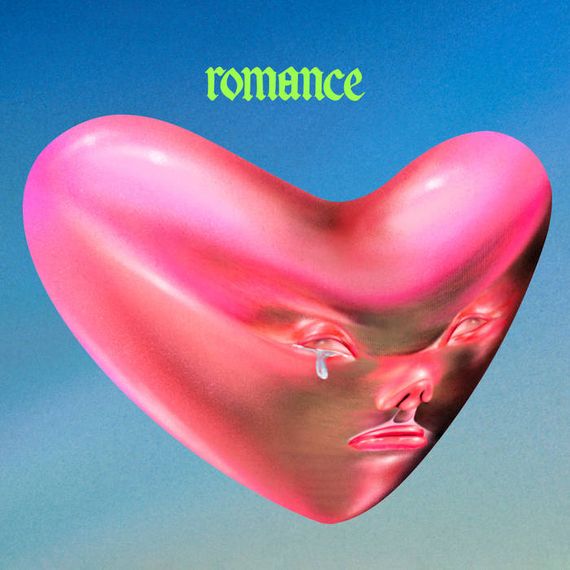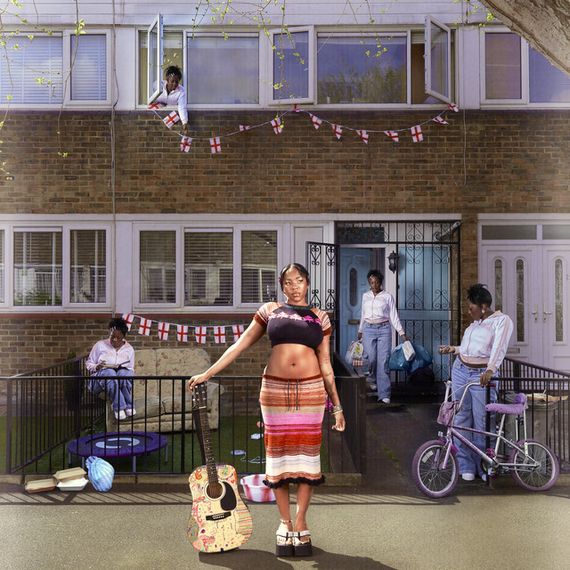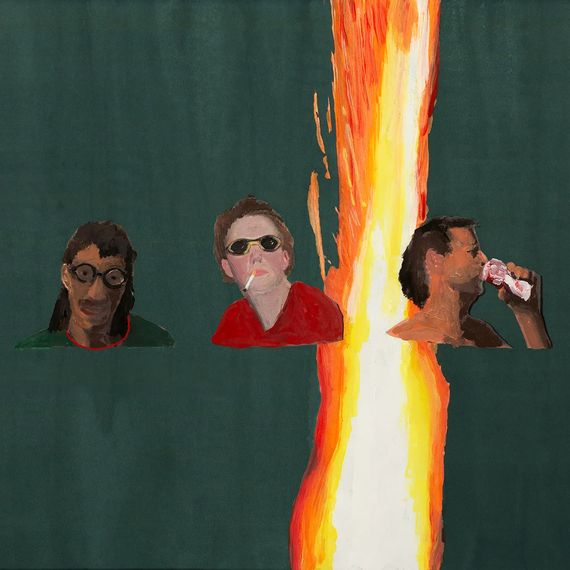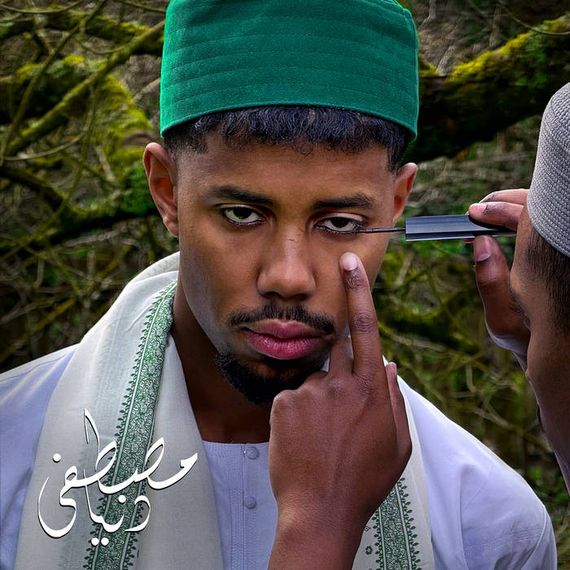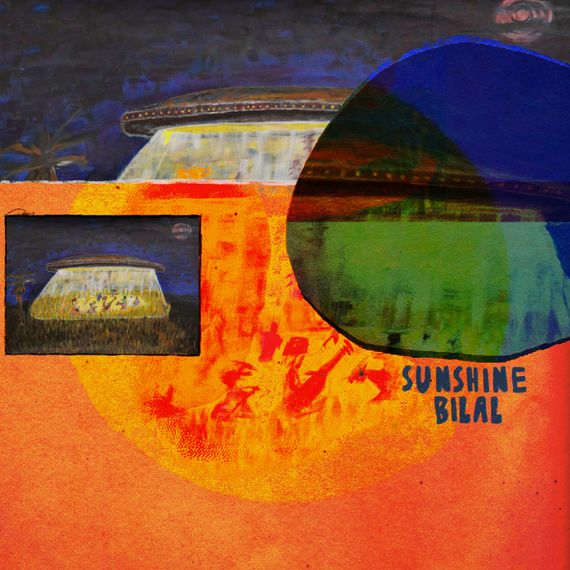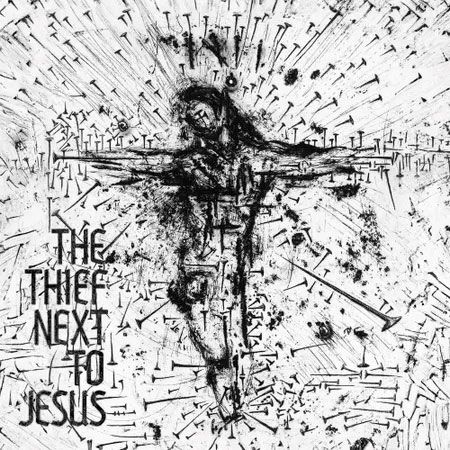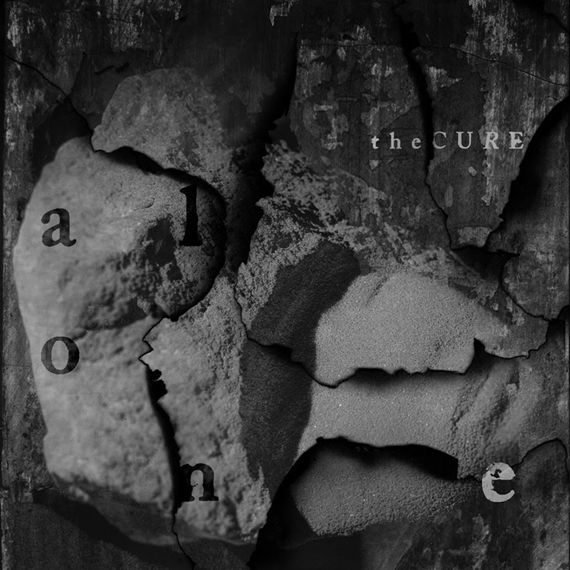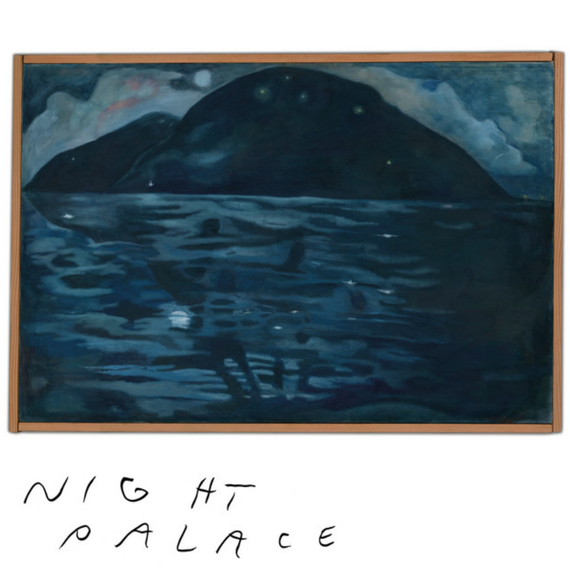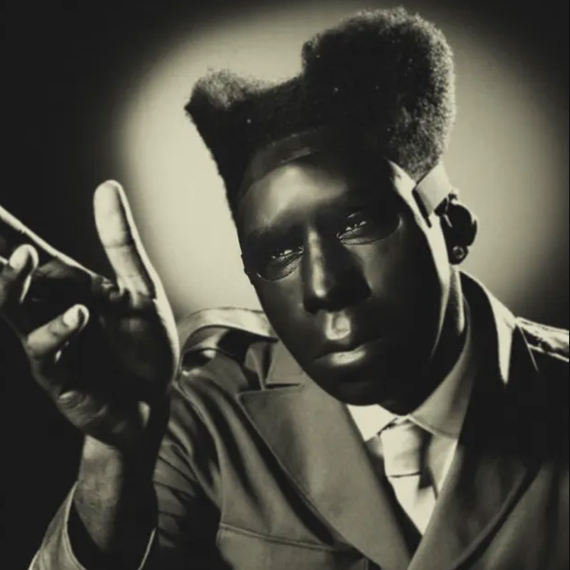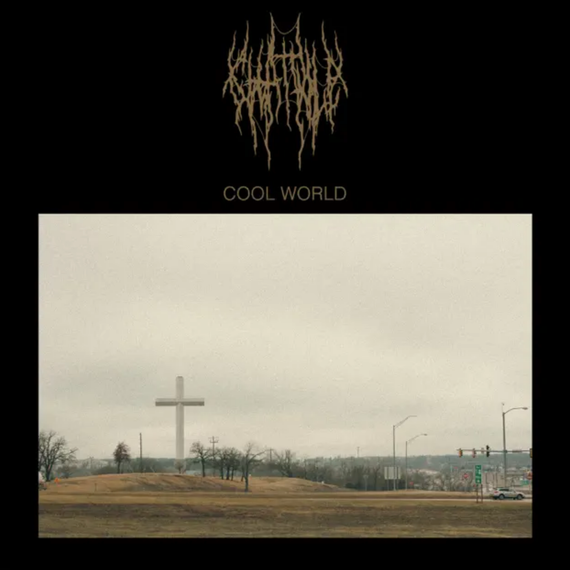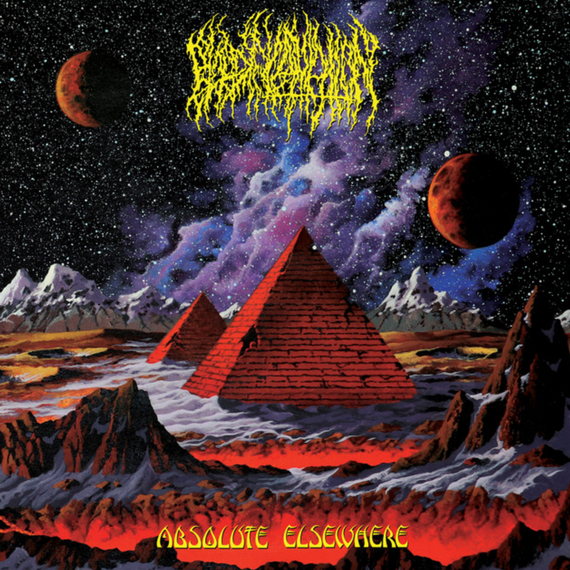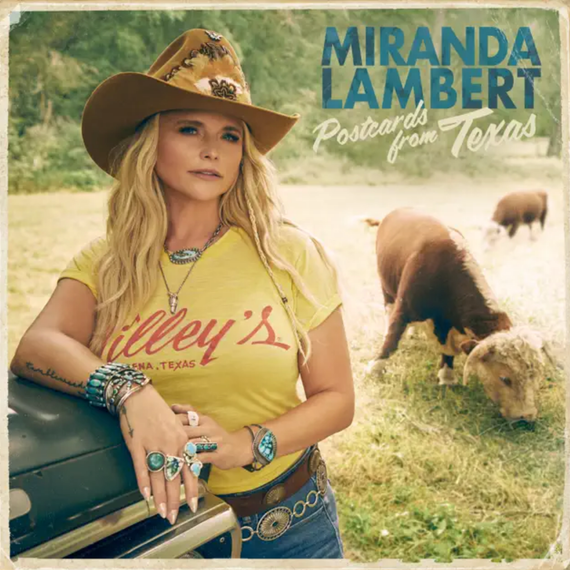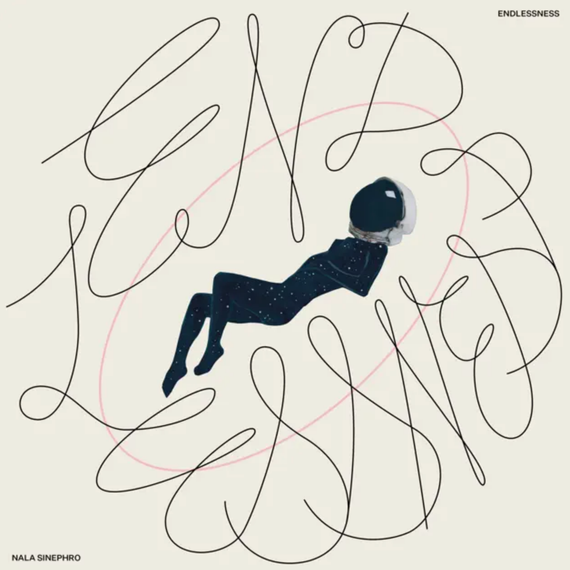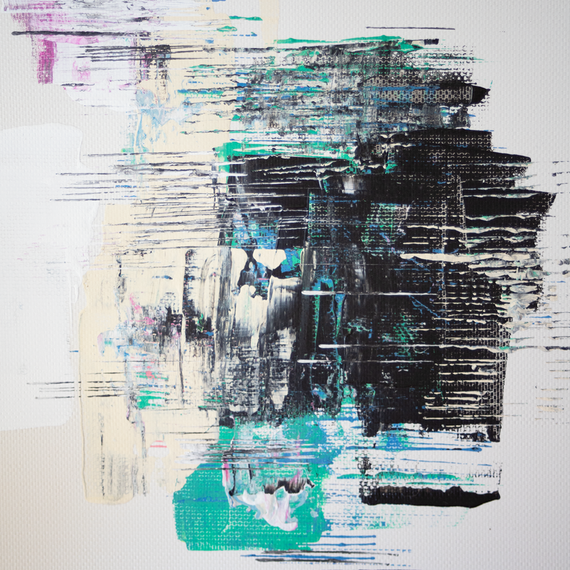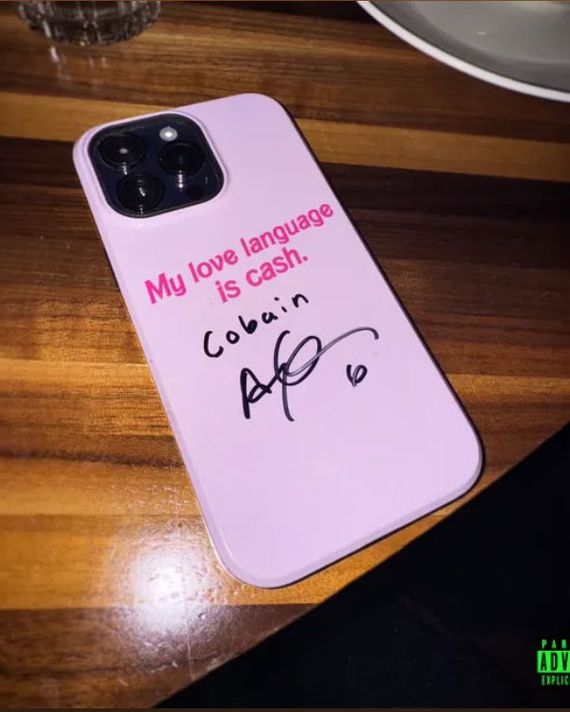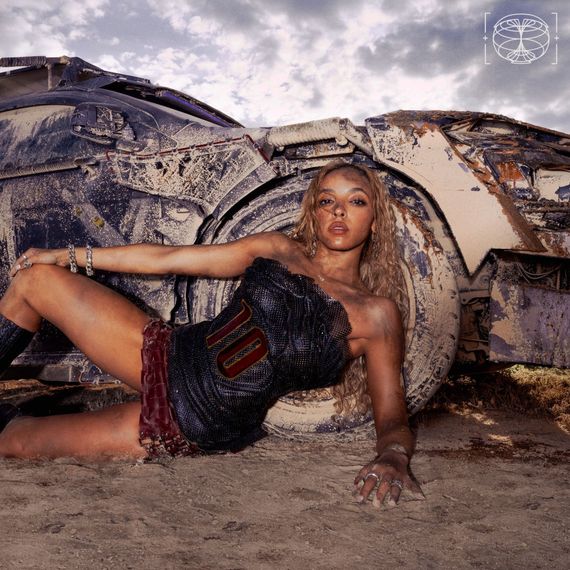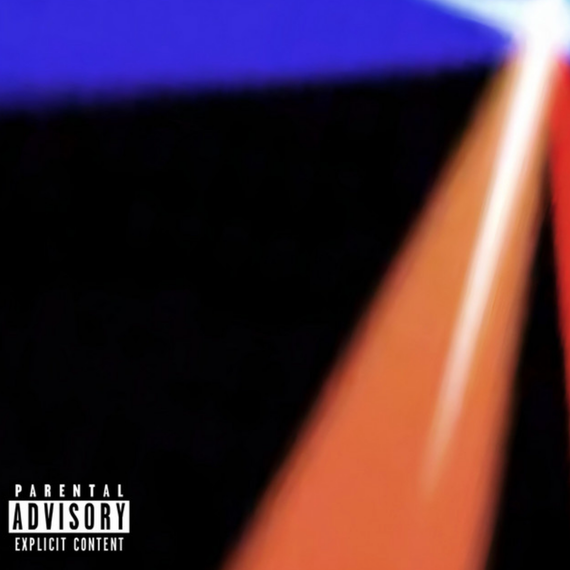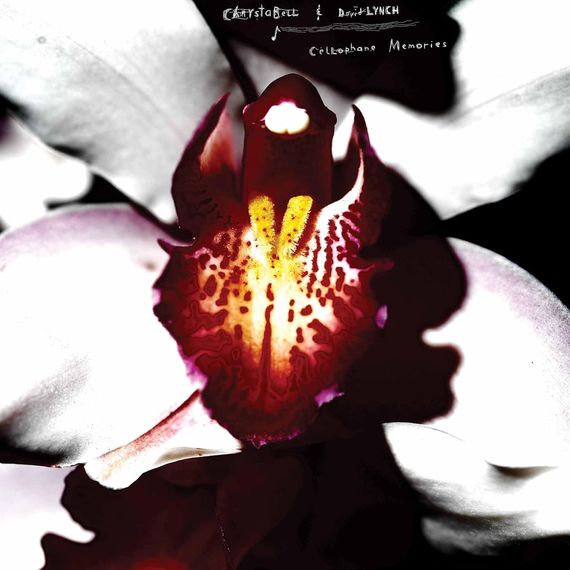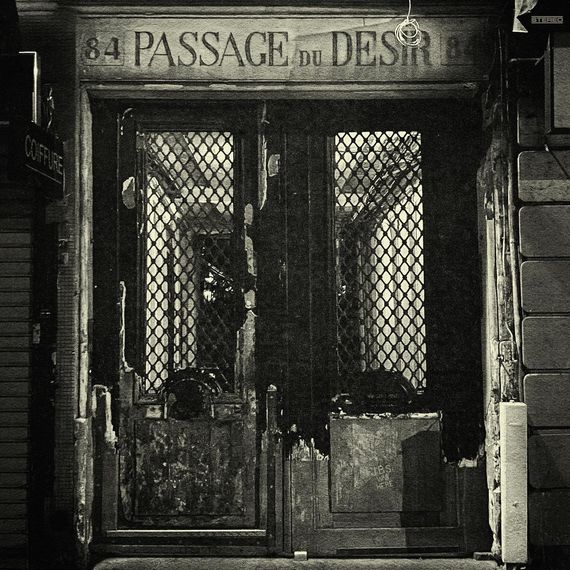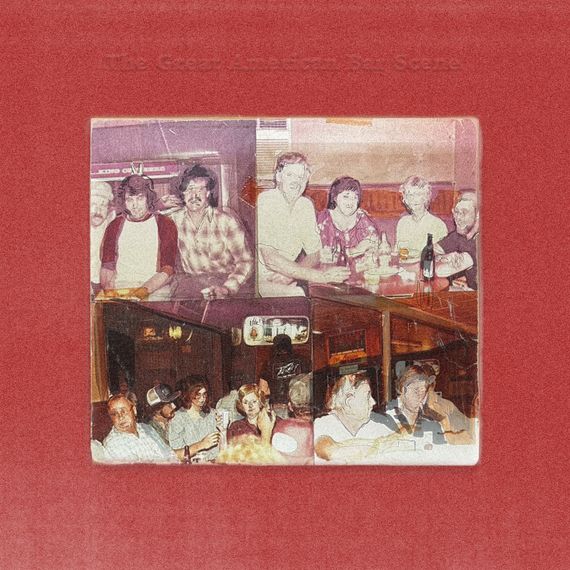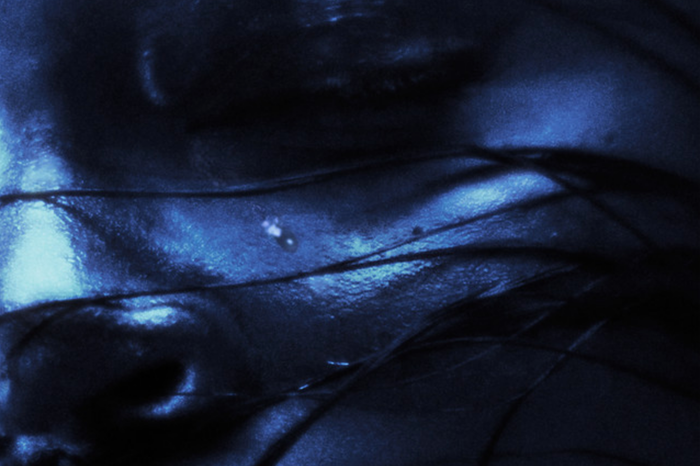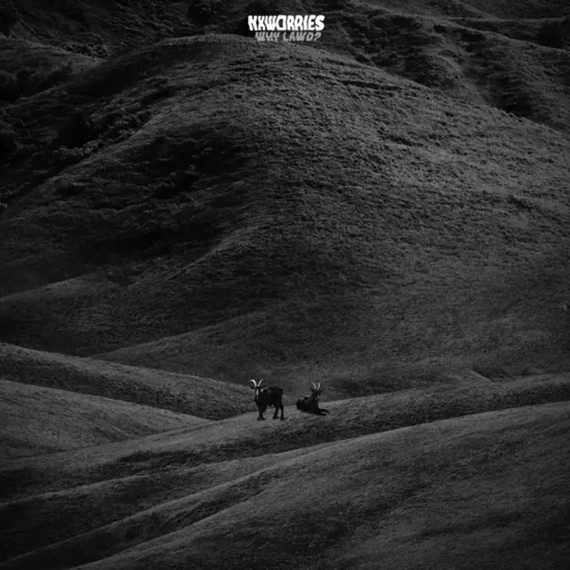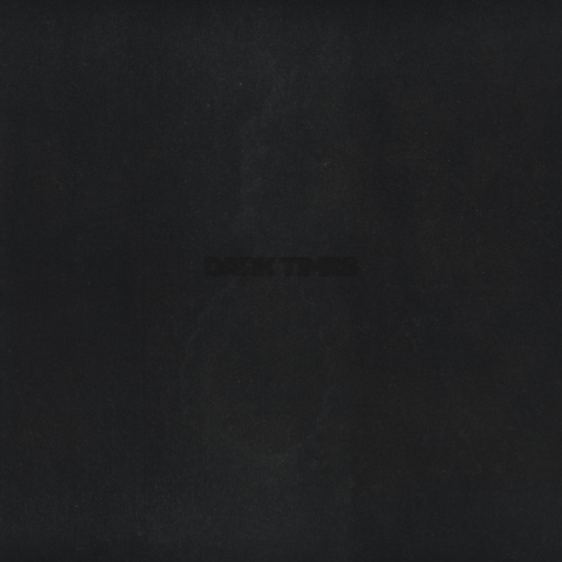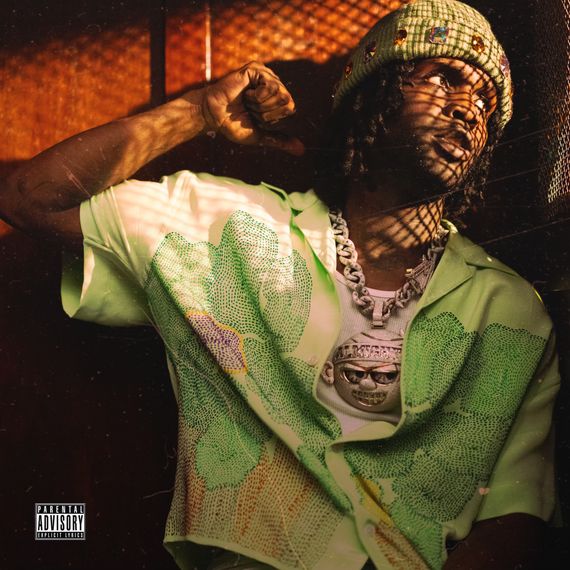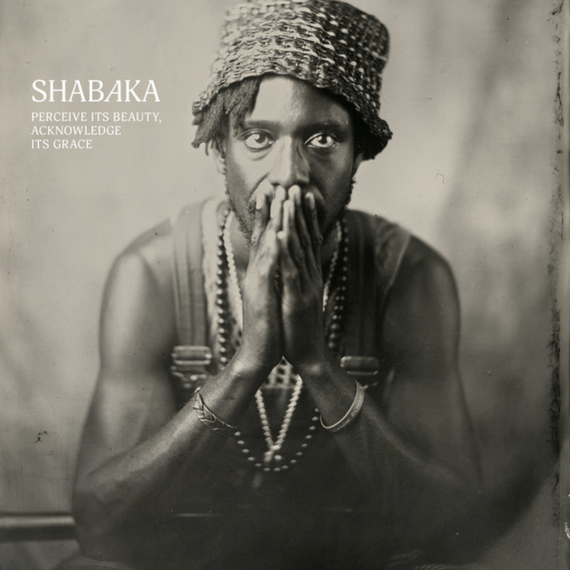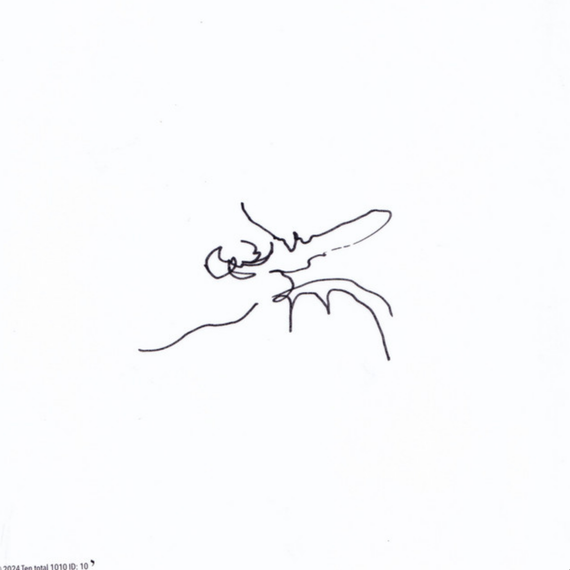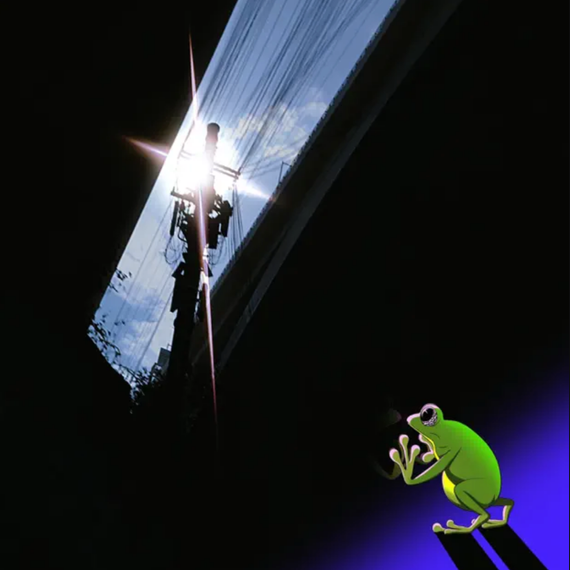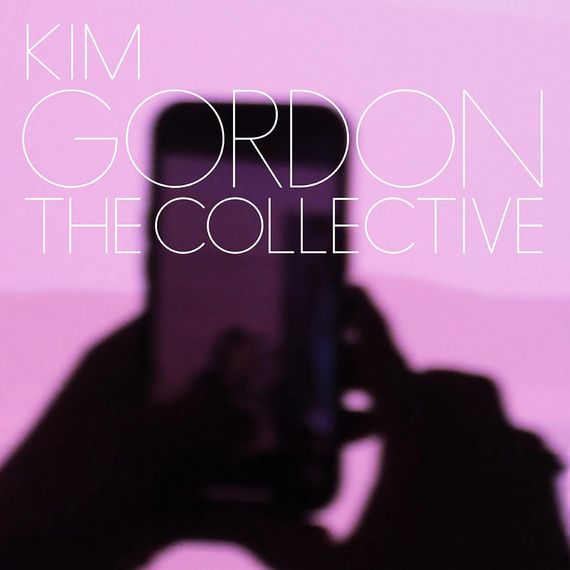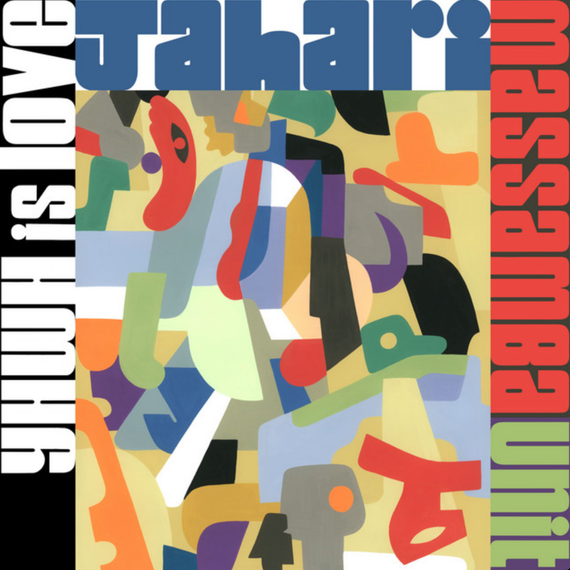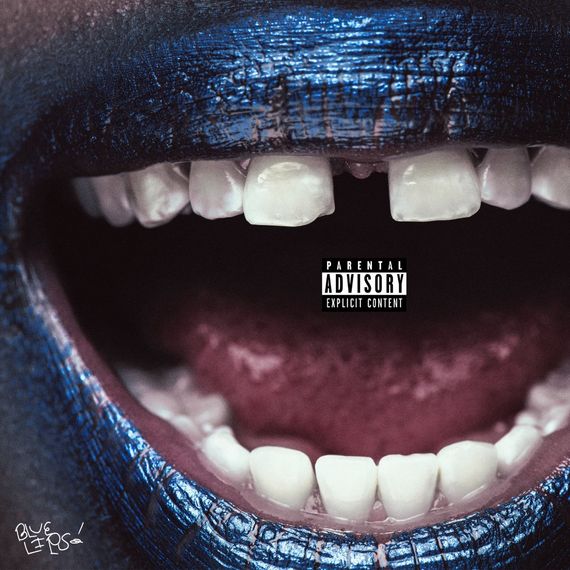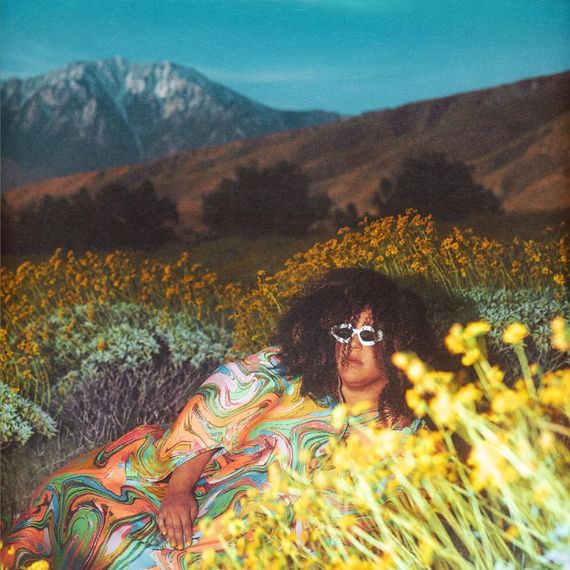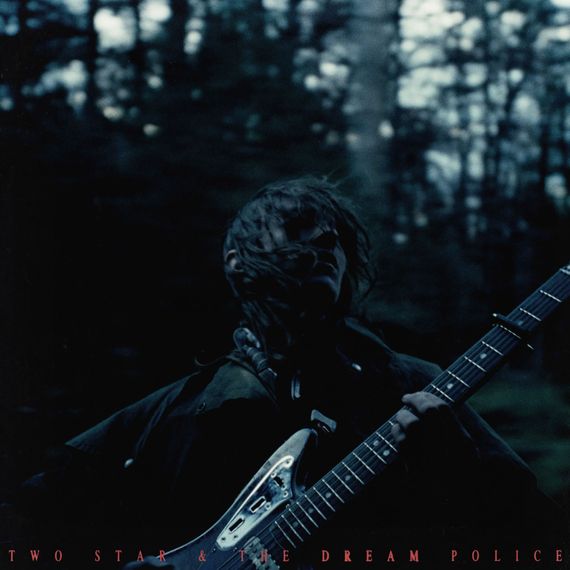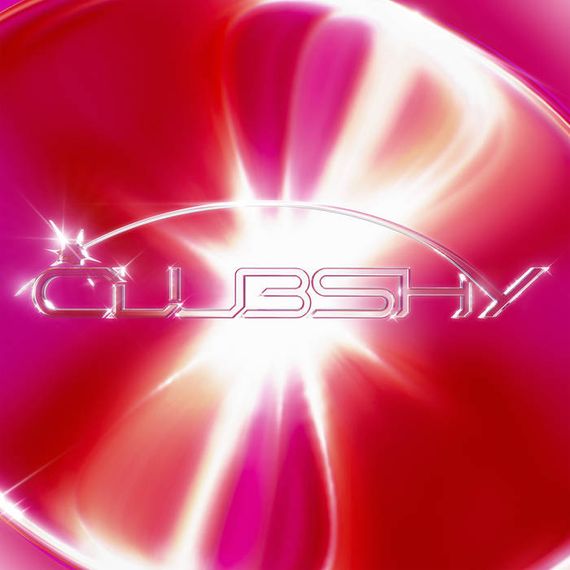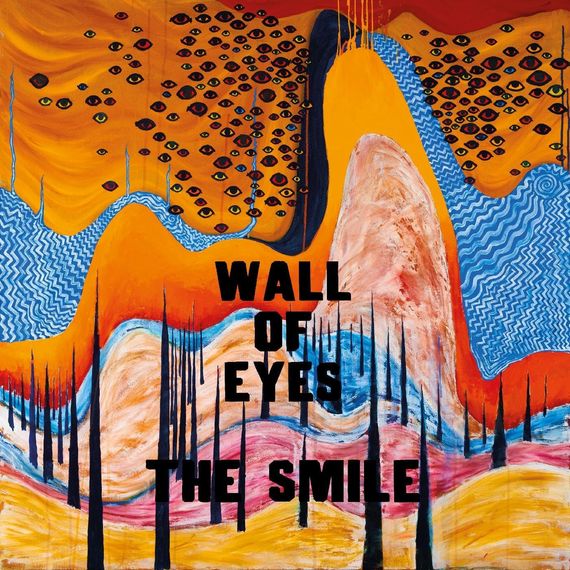
This year was one big stress test that presented artists with a choice: Face uncomfortable realities or serve distractions to the audience. Pop music turned inward and looked backward while hip-hop weathered court cases and incalculable losses. Country struggled to reconcile conservative interests with a much wider base of artists and listeners while rock and roll and dance music stretched past their boundaries, occasionally co-mingling. With a keen awareness of what lies on both ends of the spectrum of human kindness and cruelty, 2024’s best music documented an unbreakable will to keep pushing past the worst days to get to wherever the peaceful ones were hiding.
10.
mediopicky, Bexaco y rico
The playful spirit of Dominican DJ and producer mediopicky shines through his records. September’s el precio de la yuca was a clever urbano concept album imagining a future podcast finding the record and unpacking it in real time. October yielded the more concise Bexaco y rico, which uses dembow as a launch pad into hyperspace. The frenetic “disilence” soars on clattering percussion and synths that conjure Sonic the Hedgehog levels of the mind. But the mixes slam just as hard when the tempos slow: “tu papi rico” pairs reggaeton brashness with industrial crunch, and, as “UniKorN” distorts gossamer bells, it raises discomfiting harmonics. Bexaco unfolds like a consequential club night.
9.
Various Artists, TRAИƧA
The HIV/AIDS advocacy nonprofit Red Hot Organization is good for at least one great-to-arguably-classic benefit compilation per decade: 1993’s No Alternative housed a sought-after Nirvana B-side; 2009’s Dark Was the Night tracked the aughts indie-rock explosion with Grizzly Bear and Bon Iver jams; 2016’s Day of the Dead delivered five hours of jaw-dropping Grateful Dead reworks. This year’s TRAИƧA gained steam after the untimely death of pop and dance-music impresario SOPHIE in 2021 as a celebration of trans and nonbinary musicians’ contributions to culture. Any stretch of track list is a joy: Beverly Glenn-Copeland is everywhere. Massachusetts folkie Anjimile joins Bartees Strange and Kara Jackson for a slick rendition of TV on the Radio’s “Wolf Like Me,” and then Laura Jane Grace tears into Jayne County’s “Surrender Your Gender” with Sonic Youth’s Lee Ranaldo in tow. Hunter Schafer reads Eileen Myles a few minutes after Julien Baker serves a bustling take on a ’90s Belle and Sebastian classic. Like No Alternative, TRAИƧA buries its trophy: The ’93 Nirvana cut was a hidden track, and its successor seats the return of Sade at track 37 of 45. “Young Lion” sees the quiet-storm icon apologizing to her son Izaak for not noticing and affirming his manhood sooner. The lineup is an embarrassment of riches, snaking through ambient, folk, and jazz songs where cishet, queer, trans, and nonbinary artists exchange ideas on art and personhood that our governments resist.
8.
Fontaines D.C., Romance
Romance, the fourth studio album from erstwhile Dublin post-punk quintet Fontaines D.C., is a lad-rock epiphany ambitious enough to incur the wrath of Oasis’s Liam Gallagher, who thinks “they look like a shit EMF.” Absurd press photos notwithstanding, Romance is the rare noisy streamlining of an acclaimed band’s sound that loses no ferocity from tightening up. The string-adorned, grungy straightforwardness of “Desire” might frustrate fans of 2020’s dour, taut “Love Is the Main Thing,” but the message of weathering insurmountable odds by closing ranks is still there. Building on the folkier and more reflective stretches of 2022’s Skinty Fia, Romance offers a bolder and more dynamic rendering of ideas animating Fontaines since the start.
7.
Rachel Chinouriri, What a Devastating Turn of Events
Croydon singer-songwriter Rachel Chinouriri was born in 1998, but her debut album, What a Devastating Turn of Events, drips with nostalgia for the mid-’90s Cool Britannia she narrowly missed. Britpop’s blend of tart hooks and exploration of the failings of Thatcherism echo in the title track’s harrowing abortion rights yarn. The rest of the album paints a more fleshed-out picture of coming up in the shadow of Thom Yorke and Lily Allen and landing in the Olivia Rodrigo era of powerhouse vocalists making killer rock songs. “My Everything” is crushing, psychedelic break-up playlist platinum, and “The Hills” out-Weezers Van Weezer.
6.
MJ Lenderman, Manning Fireworks
Inching away from scrappy, craggy cosmic-rock tunes that pulled inspiration from forebears like Will Oldham and the late Jason Molina, North Carolina singer-guitarist MJ Lenderman arrives at a more crisp and clear sound on Manning Fireworks, his fourth studio album. Pitched between the country-tinged slacker rock of a Freedy Johnston and the reedy doom of Dinosaur Jr.’s J. Mascis, Lenderman sings coolly of biding time and escaping a rut. “She’s Leaving You” sells shrugging motivation: “It falls apart / We all got work to do.”
5.
Mustafa, Dunya
The hushed folk tunes of Sudanese Canadian singer-songwriter Mustafa sit at a philosophical roundabout joining familial obligations, faith journeys, and inner-city struggles. Everything’s connected; a breakdown in any lane creates a spiritual traffic jam. Following 2021’s curt, arresting When Smoke Rises, this year’s heftier Dunya tugs at the decade’s most disheartening threads. “What Happened, Mohamed?” mourns a friendship ruined by growing neighborhood strife. “Gaza Is Calling” and “Beauty, end” speak to the all-too-common experience of bracing for the worst news of loved ones trapped in ethnic-cleansing operations across the globe. “You been on the phone for far too long,” the latter song frets knowingly. “It’s either someone’s coming back or someone is gone.” Dunya depicts the man’s mission to hold cherished people and traditions close while the larger facets of reality he can’t control shake his foundations.
4.
Bilal, Adjust Brightness
After scoring a string of R&B hits in the early aughts and returning for a formidable trio of 2010s albums, Soulquarian veteran Bilal Sayeed Oliver disappeared into travel and family life, taking up residence in Morocco for a time with his wife and her family. “Evr Chngin Nrml” from Adjust Brightness, his fifth album, pithily addresses a massive gap in his release calendar: “Fate would have me quarantine alone / And after that, I lost my phone.” The 1st Born Second singer hasn’t lost a step; his instrument — the closest thing to Prince’s in its delicate, purposeful fraying of gorgeous falsetto runs — remains breathtaking in action. It’s softer than the sparse strings in the sultry “Tell Me”; it’s a reverb- and phaser-soaked drone in “Quantum Universe.” Adjust Brightness reinstalls Bilal as a nexus joining jazz, funk, jungle, soul, and rock.
3.
Ka, The Thief Next to Jesus
News of the sudden death of 52-year-old Brooklyn rapper and firefighter Ka was devastating this fall. He’d been a standard-bearer for chiseling out a career hour after moonlit hour. His records, terse and haunted, picked words and source materials carefully, like time and resources were of the essence. The Thief Next to Jesus, released in the last month of his life, is testament to monklike poise and pointedness. Prodding Black church history for a thematic concept and sorting convention for samples, Ka inspects generational trauma and resulting coping mechanisms. “Beautiful” is a rousing call-and-response with a choir: “Deeper speakin’, need to be a beacon that’s (Beautiful) / In the darkest night, little starlight is (Beautiful).” “Cross You Bear” recasts dogged independence as literal survivalism: “Discreet, not enough physique to have a leech latching on / For years only snacking on what I can catch in palm.” It all reads like a manifesto now.
2.
Mach-Hommy, #RichAxxHaitian
Like a folk hero or a problem-solving ronin, Mach-Hommy feels like he emerged as a fully formed concept, reincarnating something that’s always been there. On the East Coast rap mystic’s latest, revolutionary politics and blunted braggadocios mix in tracks decrying industry “bloodsuckers” with “avaricious hyper-capitalistic aims.” Leaning into points where his voice breaks while he raps, sings, and orates about phony rappers and Haitian liberation, Mach chops it up with Roc Marciano, Haitian Jack, Black Thought, and Georgia Anne Muldrow, sharing the pooled wisdom of intersecting perspectives. Melted sample loops are the lingua franca here, but the title track is your reminder that this isn’t one of those underground rappers allergic to a slippery groove.
1.
The Cure, Songs of a Lost World
2024 dealt endless invitations to moroseness and summoned our wild-haired crown prince of pain, the Cure’s Robert Smith. Songs of a Lost World, the band’s latest album, is a towering achievement, a perfect retrenchment in a year full of furtive attempts at similarly nostalgic measures, of artists rehashing past glories and hit songs liberally borrowing old licks. Reverting to a primal version of itself, the Cure retraces the steps leading up to our disconcerting present, wondering what went wrong. Smith, 65-year-old porcelain dramatist and too-patient pop genius, contends with the sense that the possibilities he dreamt of as a boy raised in the pride and promise of the space race have died on the vine. Everyone misses something: a friend, a loved one, a feeling of general stability, a faith in a brighter tomorrow. Lost World tussles dutifully with the nagging voice in the backs of our minds saying that belief in never-ending progress and exponential growth were grave miscalculations, when what we’ve actually left for subsequent generations is a vast array of new ways to war and die. “All we will ever know is bitter ends,” the agonizing “Warsong” prophesizes. Majestic opener “Alone” raises a glass wearily: “And here is to love, to all the love / Falling out of our lives.” But catchy melodies and deep yearning tug against grief, suggesting that to live is to lose is to hurt and persevere. “I know, I know,” “And Nothing Is Forever” admits in a maelstrom of orchestration, “that my world has grown old / But it really doesn’t matter / If you say we’ll be together.” The new songs are thick but plush, intimidating but inviting, blustering but unhurried. It’s the best the Cure has sounded this century.
Other Album Highlights From This Year
Throughout the year, Vulture maintained a “Best Albums of the Year (So Far)” list. Some of those selections appear above in our top ten. Below, the rest of the albums that stood out this year, presented in order of release date.
Mount Eerie, Night Palace
In nearly 30 years of crafting gorgeous, scrappy independent records, Pacific Northwest singer-songwriter Phil Elverum has bushwhacked his way to a delightfully unpredictable catalogue. A new album could deliver a series of brittle folk-song fragments or miniature black-metal maelstroms. Night Palace, Elverum’s 11th as Mount Eerie, circles back to the vibrant balance of psych-folk and indie-rock he favored in his late-’90s Microphones project. “Wind & Fog” and “Wind & Fog, pt. 2”, the album’s bifurcated centerpiece, captures the artist’s knack for designing a compelling sound sculpture and then bulldozing the entire scene: Drums clipping through a joyous, fuzzed-out din in the first half, “Wind” crashes into a droning coda that’s pitted and understated in all the places the front end had been triumphant. Eerie knows all your pressure points.
Tyler, the Creator, Chromakopia
On Chromakopia, rapper, producer, designer, and troublemaker emeritus Tyler, the Creator leads the charge for the generation of rap polymaths weaned on Ye and Pharrell records. Celebrated for the subtle storytelling flourishes undergirding his studio albums, Tyler takes a break from creating quirky characters to give his own family tree a shake. Between shocking personal revelations, examinations of the artist’s innermost fears, and carefree displays of affluence and mic technique, an image of reactionary modern masculinity emerges. In the process, Chromakopia strikes a smart if self-conscious balance between the softer songs that have turned into Tyler’s biggest hits and the rawness his Odd Future constituents crave.
Chat Pile, Cool World
“Remember, everyone bleeds,” Oklahoma miserabilist Raygun Busch howls in the middle of a maelstrom of grungy guitars in Cool World opener “I Am Dog Now.” Pondering a bleak year and the future it portends, noise-rock quartet Chat Pile responds with scabrous melodies and withering philosophical and political musings. Its subject matter may be uniformly grim — “The New World” invokes Christopher Columbus in surveying the ceaselessly grisly cost of nation building — but Cool World chases its prodding of our bloodiest tendencies with raucous grooves: “Dog” conjures math-metal legends like Botch, but the mournful “Shame” approaches shoegaze, and “Frownland” dabbles in nü metal crunch while referencing Captain Beefheart.
Blood Incantation, Absolute Elsewhere
Fearless Colorado death-metal foursome Blood Incantation continues to stage an exhilarating campaign of deconstructing extreme music with their fourth album, Absolute Elsewhere. 2022’s Timewave Zero and the 2023 Luminescent Bridge EP stressed that atmospheric prog-rock and ambient music can plunder the same depths as grunting tech-death grooves. Elsewhere offers a chaotic bar-mat shot swirling with all the expected ingredients — tense, showy guitarwork but also breathy synths — with some unforeseen twists. Two sidelong juggernauts, “The Stargate” and “The Message,” rocket freely through blast-beat indie-rock, Dogs-era Pink Floyd fan service, power metal, and more, exhibiting a restless and gobstopping versatility.
William Basinski, September 23rd
Sixty-six-year-old minimalist composer William Basinksi, whose corroding 2002 Disintegration Loops captured the feeling of penitently watching an old world order die, released an archival 1982 recording this year documenting a piece he first conceptualized in his youth. September 23rd takes cues from King Crimson guitarist and delay-effect expert Robert Fripp, and the collage-like literary and visual art of poet William Burroughs. The 40-minute composition feeds desolate piano notes into echo effects that alter a sense of time and space. Listening feels like witnessing the birth of a new process .
Miranda Lambert, Postcards From Texas
Lindale singer-songwriter Miranda Lambert has spent the last five years tinkering with her approach to Texas country music. On 2019’s Wildcard, a playful and poppy instinct swirled underfoot, while 2021’s The Marfa Tapes and 2022’s Palomino paid homage to the state’s long history of understated rustic classics instead. This year’s Postcards From Texas makes a more deliberate theme of Lambert’s musings on home. Part Lone Star State travelog and part breakup album, Postcards salutes familiar towns and the bittersweet memories made in and around them.
Nilüfer Yanya, My Method Actor
For My Method Actor, U.K. singer-songwriter and multi-instrumentalist Nilüfer Yanya reconnected with collaborator Will Archer for a batch of upbeat rockers and delicate ballads couched in fuzzy guitar riffs and creative drum programming. Lead single “Like I Say (I Runaway)” is a calling card for the versatility on display; it feels like a descendent of the crunch of ‘90s space-rock riffs but also the gauziness of a Frou-Frou in the aughts. But dig deeper for the stately, unhurried side B, where Actor stacks math-rock, folk, and hip-hop components like a triple scoop of ice cream systematically coating its waffle cone in a slick of sweet and complementary flavors.
Nala Sinephro, Endlessness
Caribbean-Belgian harpist, violinist, and pianist Nala Sinephro crafts adventurous long-form instrumental expeditions steeped in burbling synthesizer lines and mellifluous string accompaniment. Endlessness, her sophomore album, divides a drifting, soulful exaltation into ten parts like “Continuum 3,” where a stream of synth noodles is buffeted by the pitter-patter of pedal harp glissandos, or “Continuum 8,” which captures a mass of blippy keyboard arpeggios and snare triplets morphing carefully into a plush jazz-funk excursion.
Duster, In Dreams
In Dreams, the fifth full-length from San Jose slowcore luminaries Duster, drifts somewhere between the ominous crunch of ‘90s alt-rock and the somnambulant midwest indie rock that sprung up in conversation with it later in the decade. Bandmates Canaan Dove Amber and Clay Parton craft enticing grooves before methodically roughing them up: a swift rotary effect sweeps through glacial rocker “Aqua Tofana” like a blizzard, and a wall of tremolo fuzz juts up in the hushed “Baking Tapes,” dramatizing a verse about rising tension. Duster is enjoying a second chapter with the same batting average as the reconstituted American Football and Pedro the Lion. With just as much great post-reunion music as pre-, they return as purposeful explorers, taking a swing at the questions of how sleepy shoegaze can be and how an insular style and a skeleton crew manages to conjure such a sense of space and movement.
Cash Cobain, Play Cash Cobain
Part Sexy Drill Summer cash-out, part minimalist rapper/producer showcase, Play Cash Cobain, the debut studio album by New York’s “Fisherrr” king, further explores the Bronx star’s bespoke production where less self-certain auteurs nervously observe trends. Carefully blending sensual slick talk with toilet humor over his own candied, crumbly drill reductions, Cash exudes hard-won simplicity, an accessibility that doesn’t come at the cost of clever wordplay and intriguing sample choices. The fiercely local character of the production is bolstered by the ’90s baby’s curiosity about the last three decades of hip-hop/R&B fusions. Rapping over pieces of Tyrese and H-Town tracks, Cash revels in raunch the ’90s crooners often left to the imagination; the Drake-ish “Luv It” buries the album’s biggest hook underneath a mountain of reverb and a spatially uneven mix. Pushing drill to ambient territory in “Rump Punch” and the Teena Marie sampling “Slizzy Poetry (Interlude),” Cash plays with convention but applies his own stamp.
Tinashe, Quantum Baby
Breezing through eight tracks in the time it takes to get from opening to closing credits in the average TV sitcom, Cali R&B vet Tinashe’s Quantum Baby showcases the enduring gifts that yielded a hit in the salacious invitational “Nasty” a decade after “2 On” touched the Hot 100. Quantum surveys bedrooms and breakups via boldly skeletal beats and breathy innuendos, adapting delicately to the tone of the radio in the pared-down melodies of the uptempo trap banger “When I Get You Alone” and the drill and club music hybrid “Cross That Line.” Outside the careful concessions, she radiates consistency and ephemeral soul throughout this stream of yearning come-ons and exhausted reprisals.
➽ Read Jennifer Zhan’s interview with Tinashe.
DORIS, Ultimate Love Songs Collection
New Jersey–based rapper, producer, and visual artist DORIS’s 50-track Ultimate Love Songs Collection delivers a noisy exception to the accepted wisdom that bloated track lists and overreliance on samples are scourges in modern hip-hop. This woolly batch of SoundCloud demos and loosies marries the winding, kaleidoscopic approach of rap music, before sample laws to the melody-forward tendencies of the cell-phone-as-sampler era. One song envisions Playboi Carti crushing it at a Smiths karaoke night, another suggests a lovestruck son of Madib’s cartoon-villain alter ego, Quasimoto, and another feels like an evil brother to the pitched-up R&B of 4batz. Love Songs holds the hallmarks of an era of heterodox rap-hook writers, deep YouTube exploration, and DIY mash-ups and blends, but the loonier flips restore the ’89 feeling of wondering whether an exciting piece of collagework will one day be sued out of existence.
David Lynch and Chrystabell, Cellophane Memories
Just as Twin Peaks turns your textbook rural-police procedural into a treatise on reality and personhood, and Dune (1984) makes a pageant of literal and philosophical ugliness out of a story about intergalactic greed, Cellophane Memories, the second album from interdisciplinary giant David Lynch and San Antonio singer-songwriter Chrystabell, recasts the old Hollywood glamor of her voice as spectral building block for droning sound sculptures. It’s a bolder work than its 2011 predecessor This Train, which felt spiritually indebted to Julee Cruise Roadhouse nights. Train was meat-and-potatoes; this is characterful smoked jerky: tough, distinct flavor you don’t indulge in every day but won’t quit chewing on when the need arises.
Wand, Vertigo
Cali psych-rock quartet Wand expands in a few directions at once on Vertigo, its sixth album. Eight tracks culled from extensive jamming have been whittled down into hearty exercises in patient instrumental interplay. “Hangman” and “Curtain Call” hinge on singer-guitarist Cory Hanson’s disembodied upper-register vocals and shimmering leads, which pair like a ’60s blue-rock front man holding his own in a shoegaze unit; “Smile” and “High Time” both uncork the bottled essence of ’90s alternative rock, the former unfurling chugging, echo-drenched guitar lines that tap into the spirit of Billy Corgan and Noel Gallagher classics and the latter nudging Hanson’s voice into Thom Yorke territory. The three- and four-minute tracks land all their punches, and the six- and seven-minute workouts never lose steam.
Sturgill Simpson as Johnny Blue Skies, Passage Du Desir
Making good on a pledge to release just five proper studio albums under his government name, country troubadour Sturgill Simpson returned as Johnny Blue Skies for the summer’s surprise release Passage Du Desir. Unlike Garth Brooks’s Chris Gaines era, a brief vacation in mid-’90s butt-rock, Blue Skies doesn’t use the cover of an alter ego to try anything Simpson doesn’t care to put his name on. If anything, Desir is rifling through the artist’s colorful back pages. “Right Kind of Dream,” a New Wave love song, mines the same ’80s rock impulses as 2019’s ZZ Top indebted Sound & Fury, while the opener, “Swamp of Sadness,” navigates a shipwrecked distress reminiscent of 2014’s Metamodern Sounds in Country Music, and “If the Sun Never Rises Again” revisits the soul-man melisma of the funkier bits of 2016’s A Sailor’s Guide to Earth. Hitching on passing musical traditions like trains and meeting changes in genre and instrumentation with subtle shifts in his approach to vocals — the twang in the pure country “Scooter Blues” softens in the psych-rock epic “Jupiter’s Faerie” — Simpson serves a record that makes noble use of the preceding decade of wanderlust and refinement.
Zach Bryan, The Great American Bar Scene
Oklahoma singer-songwriter Zach Bryan writes tender tunes about the struggle to live a just and content life, fashioning fiercely independent and largely self-produced Americana music unburdened by the usual baggage carried by the genres he dabbles in. He writes affecting folk songs without falling prey to fedora-bro sentimentality, sweeping surveys of lives falling apart that seem allergic to heavy-handed messaging, and party songs acknowledging the fact that there’s something driving the characters to drink. The Great American Bar Scene, Bryan’s fifth studio album, blends its requisite elements smoothly but gets most of its mileage from his arrow-straight emotional candor, expressed most purely in deep cuts like “28,” a song inspired by a health scare Bryan’s dog suffered, and “Mechanical Bull,” a nostalgic thought spiral haunted by the inescapable sense that somewhere, closing time has been called on the world as we once knew it.
➽Read Craig Jenkins’s review of The Great American Bar Scene.
Amaarae, roses are red, tears are blue — A Fountain Baby Extended Play
This EP offers a second dip in the aqueous funk served by its predecessor, last year’s Fountain Baby. Thirty-year-old singer, rapper, and producer Amaarae’s acclaimed debut — home to a Clipse sample and gauzy guitar licks — was no fluke. The summer tributary EP pops with effervescent flows and cadences anchored in limber melodies. Ambitious in purview, roses zips halfway around the world from carnal afrobeats opener “sweeeet” to the closing remix of Fountain Baby’s “Disguise” with 6lack. “THUG (Truly Humble Under God)” is a showcase for Amaarae’s raps and R&B runs whose drums arrive highlighting different accents than the ear expects. The EP hangs less sharp turns than Baby but still revels in a shapeshifting talent. That was the party; this is the kickback.
NxWorries, Why Lawd?
Eight years since Yes Lawd!, the left-field collaborative opus that affixed the kaleidoscopic structure and boom-bap ethos of MF DOOM and Madlib’s Madvillainy to gritty R&B, NxWorries, the duo of California singer Anderson .Paak and Philadelphia producer Knxwledge, returns with Why Lawd? Where the first album celebrated new love and good humor — “I want you, so I’ll give up my side piece” — the long-awaited follow-up catalogues the fallout from a divorce in a stream of distressed reflections about dating around again while missing someone. Navigating the darkest catacombs of the heart, .Paak and Knxwledge rifle through several beloved song archetypes: “Daydreaming” pipes in gated reverb and guitar solos like ’80s Prince and Janet Jackson tracks, but “Battlefield” evokes D’Angelo’s collaborations with hip-hop artists as .Paak balances limber rhymes and tight vocal harmonies. In a landscape replete with the plasticine simulacra of old rap, funk, and soul, Why Lawd?’s rendering feels genuine and lived in.
Charli XCX, brat
Having spent the last few albums locating a workable balance between slick, mannered pop songwriting and cutting-edge dance music, hyper-pop luminary Charli XCX mixes the peanut butter with the chocolate on brat, her revelatory sixth album. Collaborating with a killer lineup of brilliant electronic music auteurs — A. G. Cook (Hannah Diamond, Caroline Polachek), El Guincho (Rosalía, FKA Twigs), Gesaffelstein (the Weeknd, Ye), Cirkut (Katy Perry, Miley Cyrus) — Charli sings about overcoming anxiety, embracing thorny emotions, and most important, tearing the club up. Brat balances private soul-searching and public airing of grievances, offsetting the sonic and thematic coarseness of “Sympathy is a knife,” “Girl, so confusing,” and “Mean girls” with the aching tenderness of “So I” and “I might say something stupid” but making sure to slip in breezy party starters like “360” and “Club classics.” It manages a feat once thought impossible: successfully feeding the crusaders for 2017’s forward-thinking if abrasive Pop 2, 2020’s suitably insular How I’m Feeling Now, and 2022’s more mainstream Crash within the same brisk song cycle.
➽Read Jason Frank’s scene report from Charli XCX’s Boiler Room set.
Pedro the Lion, Santa Cruz
Three albums into the edifying revival of his venerable Pacific Northwest indie-rock outfit Pedro the Lion, front man David Bazan continues to poke around his own past with the same pained earnestness seen in jarring old story songs like 2000’s “Eye on the Finish Line.” This year’s Santa Cruz follows 2022’s Havasu and 2019’s Phoenix in surveying the artist’s upbringing via concept albums named after cities he grew up in. Bazan sings wistfully of experiencing loss, grappling with the uprooted and peregrine feeling of moving repeatedly as a teen, and being pulled in different directions by faith, sexual desire, and a love of secular music. Santa Cruz’s tiny agonies manage a delicate balance between stately, shimmering guitar lines and plaintive synthesizer accompaniment while Bazan sings with a gusto that bests his finest performances.
Beak>, >>>>
After diving into atmospheric electronics on 2022’s graphic-novel soundtrack Kosmik Musik and exploring orchestral accompaniment on 2018’s >>>, British experimental rock act Beak> retreats to the original idea on >>>>, its fourth album. The trio, built around Portishead’s Geoff Barrow on drums and vocals, thunders through snaking, unpredictable compositions without overdubs, drifting through crunchy, sinister prog riffs; hypnotic odes to ’70s German instrumental rock gods; snappy post-punk tunes; and creeping psych-rock odysseys with aplomb. >>>> resembles a fruitful trip to the record store that yielded crisp vinyl copies of Can’s Ege Bamyasi, Pink Floyd’s A Saucerful of Secrets, and Uriah Heep’s Very ’Eavy… Very ’Umble.
Vince Staples, Dark Times
A restless rhyme stylist, a talented actor, and a deadpanning humorist, Vince Staples keeps the listener guessing from one album to the next by pairing introspective verses with whatever glorious racket he may be into that year, whether it’s crystalline synth noise, meat-and-potatoes boom bap, or classic West Coast G-funk. Dark Times, Staples’s sixth studio album, maintains his streak of curt but impactful releases and blends the sleek, economic sound of 2021’s self-titled with the coarser storytelling of 2022’s Ramona Park Broke My Heart. Serving aching couplets over the aqueous sonics of “Étouffée” — “Finding beauty in the darkness like Rembrandt / Everybody ‘gang, gang, gang’ till it get bad” — and “Freeman,” Staples ponders his history, motivations, and place in the continuum of hip-hop greats.
➽ Read Craig Jenkins’s interview with Vince Staples.
A.G. Cook, Britpop
Hyperpop pioneer A.G. Cook thunders into a new chapter with Britpop, his third album. It’s the inaugural release on New Alias, which succeeds his half-venerated and half-reviled PC Music label, a home for the work of wise dance-music innovators like the late great SOPHIE. But it’s reinvention in name only: Fans of the producer’s epochal Hannah Diamond and Charli XCX gems will find miles of bubbly, inventive synth sounds amid the triple album’s odd soundscapes, particularly in “Lucifer” and the title track, on which Charli provides expectedly insouciant vocals. In a sedate second volume populated by folk ballads like “Greatly” and rockers like the fuzzy, flanging “Bewitched,” Britpop stages a further exploration into the heady textures and melodies explored noisily on Cook’s sprawling 2020 quintuple album, 7G.
➽ Read Justin Curto’s interview with A.G. Cook.
Chief Keef, Almighty So 2
In the 2010s, Chicago drill-rap pioneer Chief Keef made headlines as a budding hitmaker whose criminal record presented hip-hop elders with a bogeyman to shoulder classic worries about song lyrics inspiring real-world violence. In the ’20s, we better understand Keef as a 28-year-old street-rap vet whose output dances between brutality, pain, and absurdity. Almighty So 2, the long-awaited sequel for a mixtape from simpler times, documents the chest-beating of a man who has seen too much. The wounded, triumphant “Treat Myself” brims with spite for anyone who didn’t believe in Keef, and in the abrasive “Jesus,” he’s playing the villain they all thought he was: “Don’t look up to Chief Sosa; look up to Jesus Christ / All these two-liters, I need an endorsement with Sprite.” Anchoring these diabolical lyrical flights is a collection of enticingly busy sound sculptures: trap drums, soul samples, ominous keys, and other melodic embellishments sparkling in the mix like the gilded garments gracing an irate monarch. Sour even in its most lavish productions, Keef will never let us forget he “come from a damn cubicle,” as the intermittently reflective and soulful “Drifting Away” reminds.
Claire Rousay, sentiment
Drifting through the psychedelic badlands adjoining Midwest emo and early post rock, sentiment — the latest full-length album from prolific singer-songwriter and found-sound composer Claire Rousay — surveys the numbness of depression with a mapmaker’s exhaustiveness. “Head” observes a relationship in disrepair, grappling wearily with a tendency to placate a lover’s mercurial moods while flowing almost imperceptibly from a creeping slowcore riff to a shimmering coda. Rousay calls this blend of crestfallen sentimentality and economic instrumentation “emo ambient,” and there’s a self-deprecating humor in the distinction, but the glum, glacial “asking for it” and “please 5 more minutes” wear their contrasts and anachronisms well.
Shabaka, Perceive Its Beauty, Acknowledge Its Grace
The British bandleader Shabaka Hutchings, formerly of Sons of Kemet and the Comet Is Coming, sets his signature saxophone aside on Perceive Its Beauty, Acknowledge Its Grace, his elegant solo album. Like Andre 3000’s New Blue Sun, Perceive honors the expressiveness of the flute and its many siblings while assembling a cast of characters that speaks to Hutchings’s prolificacy as front and side man: Andre, poet and musician Saul Williams, Armand Hammer rapper Elucid, experimental-music veteran Laraaji, and British singer-songwriter Lianne La Havas each make appearances.
1010Benja, Ten Total
Ten Total, the electric debut album by Tulsa’s 1010Benja, wars with tradition in two ways: The 34-year-old rapper, singer, and producer juxtaposes motormouth sex raps and romantic Timberlake-isms early on as the coarse “Peacekeeper” and the warm “H2HAVEYOU” lay out a knack for playing into and against classic R&B conventions. Elsewhere, in the windswept, upbeat “I Can,” you hear the preacher’s son bucking against the family worldview and carving his own spiritual path, finding use not in the organ reveries of gospel so much as the earnest emotionalism of church performance. The sensibility recalls another midwestern artist’s introduction: Chance the Rapper’s 10 Day.
Yung Lean and Bladee, Psykos
On their first full-length as a duo, Swedish rappers and longtime collaborators Yung Lean and Bladee poke around the historical antecedents to the maudlin cloud rap they’ve explored alongside their respective Sad Boys and Drain Gang collectives. Sweet, downcast vocal performances vastly outnumber the raps, and there are punchy New Wave, goth-rock, folk, and grunge tunes where somber, gauzy trap productions once reigned. The creative wanderlust that drove Lean’s 2022 album, Stardust, and Bladee’s sprawling Cold Visions this year pave the way for a more confident and streamlined musical travelogue.
Kim Gordon, The Collective
The list of ingredients appears to spell chaos: shimmering guitars, grungy drum machines, a 70-year-old white woman. Luckily, the artist in residence is restless rock-and-roll lifer Kim Gordon, formerly of Sonic Youth and more recently of Glitterbust and Body/Head. The Collective, Gordon’s second solo album billed as such, revels in abrasive guitar noise and pummeling, programmed percussion. The sinister, suffocating “Shelf Warmer” and “The Candy House” gesture to southern rap, but the album is otherwise a reminder of the closeness of hip-hop and alt rock in the era where Sonic Youth and Cypress Hill collaborated. It’s also a wry meta-discussion about the machinery of cool. “So what if I like the big truck,” Gordon preens in “I’m a Man.” The lurid “Psychedelic Orgasm” deals in disaffected people watching: “Driving down, sunset / Zombie meditation / Getting caffeinated.” The Collective doesn’t speak out in judgment of what it surveys but makes sure to relay a faint sense of the hollowness of our routines and the smallness of our dreams.
Ben Frost, Scope Neglect
It itches to categorize Scope Neglect, Australian composer Ben Frost’s sixth studio album, as extreme metal, though the parts are present in abundance. “The River of Light and Radiation” is, on paper, a djent tune that takes after the time-signature workouts from Swedish technical geniuses. But it’s not spiriting you across heady peaks to a rewarding resolution, drawing attention to a compositional resourcefulness, as is the tendency in that genre. Opener “Lamb Shift” picks over the parts of a riff that might do someone like Meshuggah justice if it would just quit falling apart long enough to loop; “Turning the Prism” seems more interested in the ominously braying noise interrupting its main riff than offering the release the brain is trained to seek after the ear comes into contact with a heavily distorted guitar and a quick, threatening kick drum. Scope Neglect is exploring metal as scenery, as tonal palate. It’s saying plodding, icy stasis can be hellish, too.
Jahari Massamba Unit, YHWH Is Love
A genre-hopping mind-meld uniting a pair of storied indie-rap figureheads, YHWH Is Love, the second album from Madlib and Karriem Riggins’s Jahari Massamba Unit, is brimming with playful, mournful, wily, and beguiling compositions that play to the duo’s wide-ranging talents as beat-makers and collaborators for everyone from Doom and Dilla to Denzel Curry and Diana Krall. Love is rangy without being showy: The de facto theme song “JMU’s Voyage” is all bustling, muscular jazz-funk; the simmering, sedate “ALL THINGS …” opts for a more silent way.
ScHoolboy Q, Blue Lips
ScHoolboy Q plugs the gap Kendrick Lamar left in TDE’s A-list rap roster with Blue Lips, his sixth album. Five years after dividing the fandom with the adroitly mainstream (if underrated) CrasH Talk, Q turns in a more dynamic performance. He can be the devil on your shoulder instigating unrest in “Pop” or the determined son and father in “Germany 86’” or the hornball in “Love Birds” or the grieving friend in “Blueslides.” “I done lost out on so much shit tryna live to your standards,” he says in the latter, resolving to prioritize his well-being and follow his own compass. The choice works wonders for the craft.
➽ Read Craig Jenkins’s full review of ScHoolboy Q’s Blue Lips.
Brittany Howard, What Now
A rock and soul historian whose guitar and vocal chops are as cold as her constellation of influences is vast, Brittany Howard serves another musicology lesson with What Now, a tour de force from the echoing, narcotic “Earth Sign” to the stately “Every Color in Blue.” Howard’s music dances deftly across decades: The motivational “Another Day” has New Power Generation airs; the wistful “To Be Still” and “Red Flags” serve hazy soul jazz. What Now documents straining relations — “I followed you and didn’t look back / I didn’t know love could feel like that / I ran right through them red flags” — but colorful compositions and arrangements undercut the sadness in tracks like “The Power to Undo,” where the protagonist is begging a partner not to demolish everything they’ve built accompanied by impossibly clattering drums and layer upon layer of gnarly fuzz. Brittany Howard is singing herself, and us, through it.
Mk.gee, Two Star & the Dream Police
Two Star & the Dream Police, the debut studio album from 26-year-old New Jersey singer-songwriter and guitar prodigy Mk.gee, marries evocative lyricism — “What’s keeping you fenced off? / And who’s got the power in your mind?” — and expressive playing, which communicates a firm grasp on rock canon but also the urge to subvert it. Highlights like the yearning “Candy” feel like conversations with the classics as much as adoring odes to their love interests. The production screams “Every Little Thing She Does Is Magic,” but the vocals owe less to Sting than the plaintive earnestness of Frank Ocean; an unexpectedly skronky solo recalls Prince’s assault on the ideological partitions separating R&B and rock in the ’80s. Moments later, “I Want” drafts a rewrite of Ben E. King’s “Stand by Me” with a solo that can’t easily be identified as a guitar. You might start to suspect he’s using snazzy effects pedals, but he isn’t.
Shygirl, Club Shy
A curt batch of bubbly dance-pop bangers touching on entertaining (and/or rebuffing) a lover’s advances, London DJ and singer Shygirl’s Club Shy goes where earlier releases like 2020’s Alias and 2022’s Nymph somewhat resisted, serving full-throated club-diva anthems reaching for the blissful, carefree sensuality of Eurodance hits like La Bouche’s “Be My Lover” and Crystal Waters’s “Gypsy Woman (She’s Homeless)”; the gorgeous, cutting SG Lewis collab “Mr. Useless,” the pulsating Boys Noize team-up “Tell Me,” and the instantly quotable “Mute” — “We putting them boys on mute, mute, mute, mute” — get dangerously close.
The Smile, Wall of Eyes
Having gelled during their extensive touring, Radiohead’s splinter cell the Smile — comprising of OK Computer architects Thom Yorke and Jonny Greenwood and London jazz drummer Tom Skinner — barrels into sophomore album Wall of Eyes touting denser, plusher compositions and a more wounded and introverted outlook. There are no searing indictments of political injustice this time from the erstwhile leftist-rock vanguard of the aughts. There is a subtle sensation of sliding into the too-hot bathwater of a trying time that could be a breakup or a death or a “dragnet” or whatever the listener needs to have a quick shudder about.





